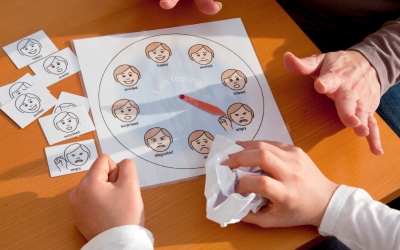How Can Enrichment Therapy Help Autistic Kids?
Studies have found that children with autism showed a significant improvement after six months of basic sensory exercises which could be performed at home each day, using items such as spoons, scents and sponges. The study was carried out by UC Irvine neurologists who discovered that a treatment known as environmental enrichment led to significant changes in the male subjects who were aged between 3 and 12. Analysing the trends of 28 boys who were assigned to two groups, researchers tested for the balance of age and autism severity. Following the boys for six months, they participated in standard autism therapies, but one group also had daily sensory enrichment exercises.
The parents of the children were provided with a kit which contained household products to help promote the level of environmental stimulation, including oil fragrances such as lavender or lemon, which the boys smelled four of each day as well as listening to classical music each evening. In addition to this, the parents conducted a session of four to seven exercises twice a day, which involved the senses, from touch, temperature, sight and movement. Each session lasted around 15 to 30 minutes. Over 40 percent of the children in this group showed a vast improvement in their behaviour which is commonly affected by autism. They also showed improvements in their cognitive function, where the average scores for the other group actually decreased. 69 percent of the parents in the enrichment therapy group said that it had enhanced their child’s behaviour, compared to just 31 percent of the standard-care group.
As the study involved household items, it serves as a low-cost alternative therapies which can be costly. Autism affects millions of children each day and this form of sensory enrichment therapy could be a great form of treatment to help reduce the effects of this condition. Researchers hope that it could help benefit children dealing with this condition, as well as their parents and society as a whole.


Comments are closed.